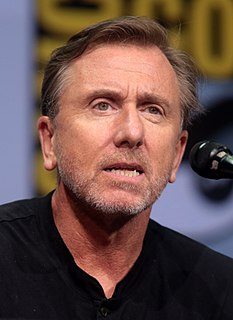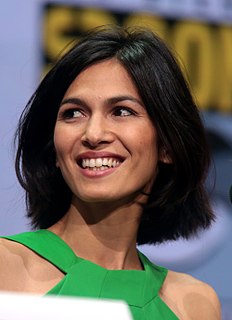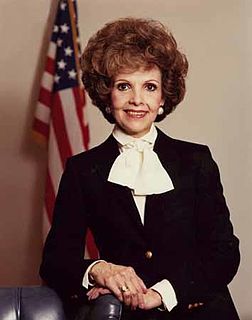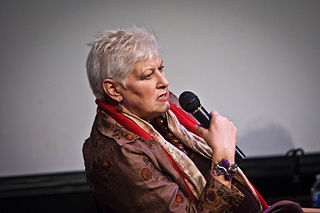A Quote by John Travolta
When I say 'yes' to a movie it's usually because, to a greater or lesser extent, it's because I'm enthusiastic about the character. How well that character ultimately comes off depends on a lot of things: your relationship with the director and so on. But at first, you're on board because you think you can do something with it.
Related Quotes
I was kind of scared at first to do that [vice-over] because when you're on set, a lot of the things going on around you - the environment and playing off other actors - and that's what makes it easier and helps you to be in your character. So, realizing you're not going to have that and you're going to be secluded in this booth, it's like, "How am I going to be a character when I'm just in these walls?"
When you are writing, you have to love all your characters. If you're writing something from a minor character's point of view, you really need to stop and say the purpose of this character isn't to be somebody's sidekick or to come in and put the horse in the stable. The purpose of this character is you're getting a little window into that character's life and that character's day. You have to write them as if they're not a minor character, because they do have their own things going on.
The first thing that happens is the cleansing of the former character. I don't think a lot of actors talk about it, but there is usually a process where you essentially purge yourself of the character played prior to the movie. Then you want to think about what the character represents, and you write down all of the elements about this character and then take the time to find some synchronicity and start breathing the character.
When something arrives, you have no idea what's in it, which is good. And then, it's is the story leaps off the page at you and how your character functions within it. There could be just one scene and if it's wonderful, it doesn't matter how much you're working on it because you just want to be in it. It's really about what your character's day to day world looks like, and if you feel like that's something that's complete, and that you'd like to inhabit for awhile. You'll know by a couple of scenes in. If the character grabs you, you run with it.
Things like the movie 'Memento' are interesting to me because our memories of the things we've done and how we've behaved form our notion of who we are, what our character is. So if part of that were missing, what does that actually say about you? And what does it say about your sense of responsibility for things if you can't remember them?
My problem is, whether it's for emotion or for the talents that a character has to have in a role, I find it very difficult to not take on a challenge. I need to say, "Okay, enough, take the easy road." But the easy road for me is not - it might just come out coincidentally. I wouldn't ever choose a movie because it's easy. I might choose a movie because I feel like being funny, or I feel like being able to do something that is perhaps dramatic, but to a lesser degree. Because I like switching it up, basically, not because I would take the easier road.
When you're no longer seeing yourself, in some ways. You're as close to being as you can be.I suppose that's consistent with the moment that the mind actually turns off, and is no longer questioning what you're doing. When the questions stop, that's when the real acting takes over. And trying to get to the point where the questions stop, "Would I do this? How do I feel about that as a character?" When those stop, and it's just doing X, Y, and zed, because that's what you'd do as this character, because you're inside this character somehow - that's when it really kicks off.
And it interferes with your ability to be a good actress if you're constantly aware of yourself as a person. To me, it isn't valuable to think about how I'm coming off all the time if I'm trying to create a character, because that's a process that I love. It's like falling in love and surrendering to another person or a character.



































